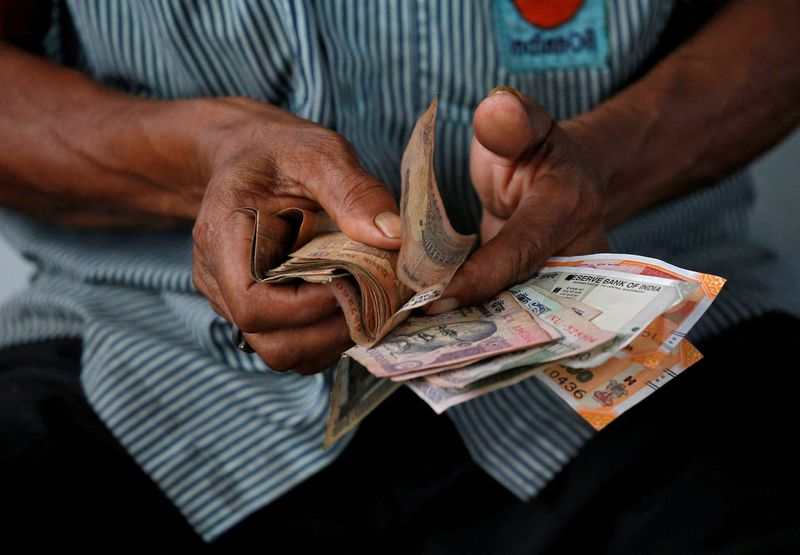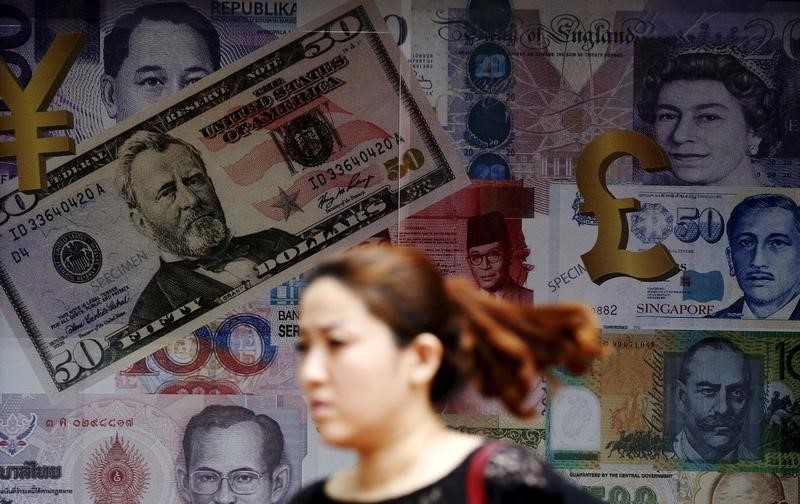By Nimesh Vora and Jaspreet Kalra
MUMBAI (Reuters) – Indian importers are exploring options strategies to hedge against currency risks amid subdued rupee volatility, moving away from outright price gains that have become expensive, traders said.
Premiums, which reflect the interest rate differential between the United States and India, have soared as the Federal Reserve is expected to begin a rate-cutting cycle starting next week.
“With term premiums having risen significantly, we encourage importers to consider option structures,” said Samir Lodha, managing director at forex consultancy QuantArt Market Solutions.
The dollar/rupee 1-year forward premium has risen nearly 75 basis points over the past two months to a 16-month high, making it more expensive to hedge future foreign currency payments.
Because premiums are high and volatility is low, the use of option structures such as capped forwards is recommended, says QuantArt’s Lodha. The cost of using a hedged forward is approximately 55%-65% lower than using forwards.
For example, such structures would allow importers to lock in a currency payment due within six months at the dollar/rupee spot rate of 83.96, but the protection would be valid only up to 85, Lodha said.
This is where the relative stability of the rupee helps as the chances of a major depreciation in a short period of time are low.
India’s central bank, which operates on both sides of the forex market (buying and selling dollars), has suppressed volatility, making the rupee among the least volatile currencies in Asia.
“Both implied and realized volatility remain extremely low, leading importers to use option structures such as seagulls, knockouts and range forwards for better payout in the current market environment,” said Ashhish Vaidya, managing director and treasurer of Global Financial Markets at DBS Bank . India, said.

In a knockout, the importer can buy dollars at a better rate than in the futures market, but this benefit ends if the rupee depreciates beyond a predetermined level.
“There is no denying that higher premiums are deterring importers from hedging in the futures market,” leading to calls for options structures that are cheap, said a currency salesperson at a bank.


